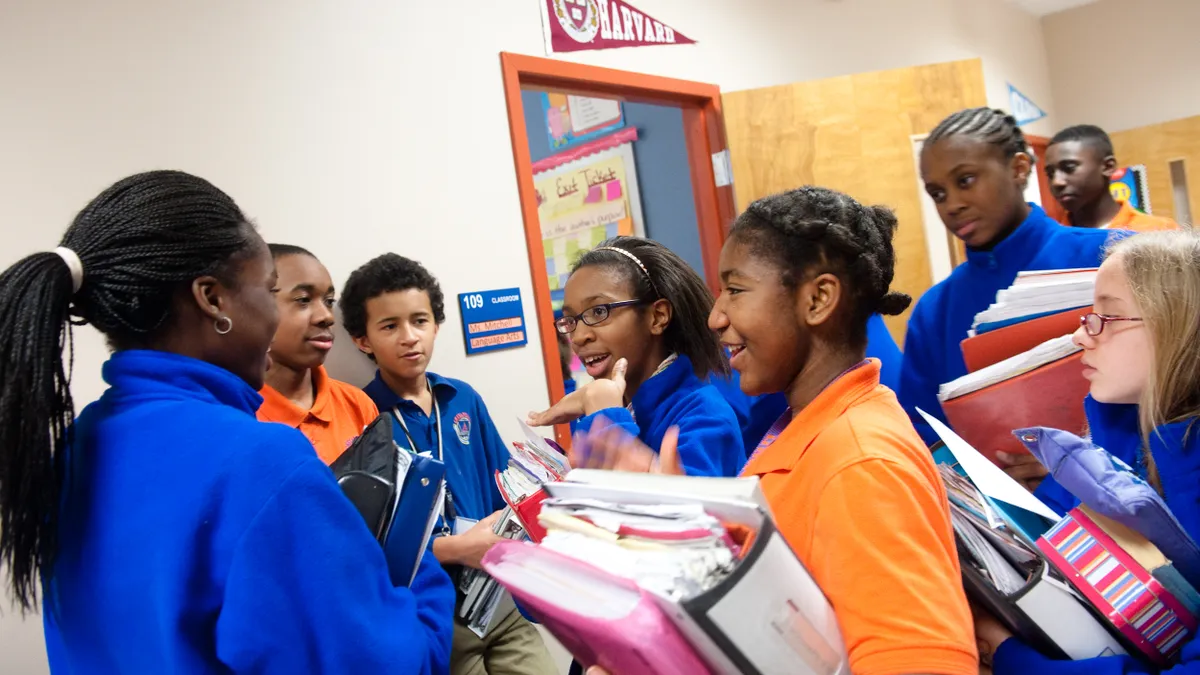Dive Brief:
- In efforts to dismantle systemic racism, teachers must be aware of “discretionary moments” when responding to students and consider the way they do so may subconsciously differ based on entrenched biases, Broward County Public Schools Superintendent Robert Runcie told District Administration.
- The Florida district also uses Courageous Conversation — a professional development platform focused on discussions about race, diversity and tolerance — to guide training, and 300 of its teachers have trained through the program to become liaisons to peers and champion racial equity in schools.
- The program shows educators how race has played a role in their lives and leadership practices, demonstrating the impact of being aware of simple nuances such as learning how to correctly pronounce a student’s name or learn how students from different ethnic backgrounds express themselves. Social justice is also a focus of Broward’s speech and debate program, which is offered in all middle and high schools.
Dive Insight:
On top of contending with a pandemic-driven shift to distance learning this year, educators have also had to address the nation's rising awareness of systemic racism in the wake of protests over the police-involved deaths of Black Americans.
For many districts, efforts to advance racial equity and eliminate systemic racism have begun with the disparities in discipline between Black and White students. A study published in October 2019 revealed a 10% jump in the discipline gap between students in grades 3-8 correlates with an achievement gap 17% larger than typical between Black and White students.
The study also found as the achievement gap grows, so too does the discipline gap. A similar disparity was also observed between White and Hispanic students.
Some districts have also embraced anti-racist philosophy, which states that rather than simply being "not racist," people must recognize and eliminate policies and practices that feed systemic inequality in order to move toward a fair society. Administrators in the mostly White New York’s Pleasantville Union Free School District have been reading the books “How to be an Anti-Racist” and “White Fragility: Why It’s So Hard for White People to Talk About Racism.” The district also shifted its AP history courses from a European and Western civilizations course to one focused on world civilizations.
At Newton North High School in Massachusetts, Principal Henry Turner says teachers have taken it upon themselves to form committees addressing racism and the question of what it means to be an anti-racist school.
And in California's San Lorenzo Unified School District, Superintendent Daryl Camp urges educators to get a deeper understanding of the Black history that pre-dates the slave trade. For example, beyond physical strength, slaves arrived with knowledge of cultivation, he said. Camp also holds monthly conversations about race and the role it plays in education.














